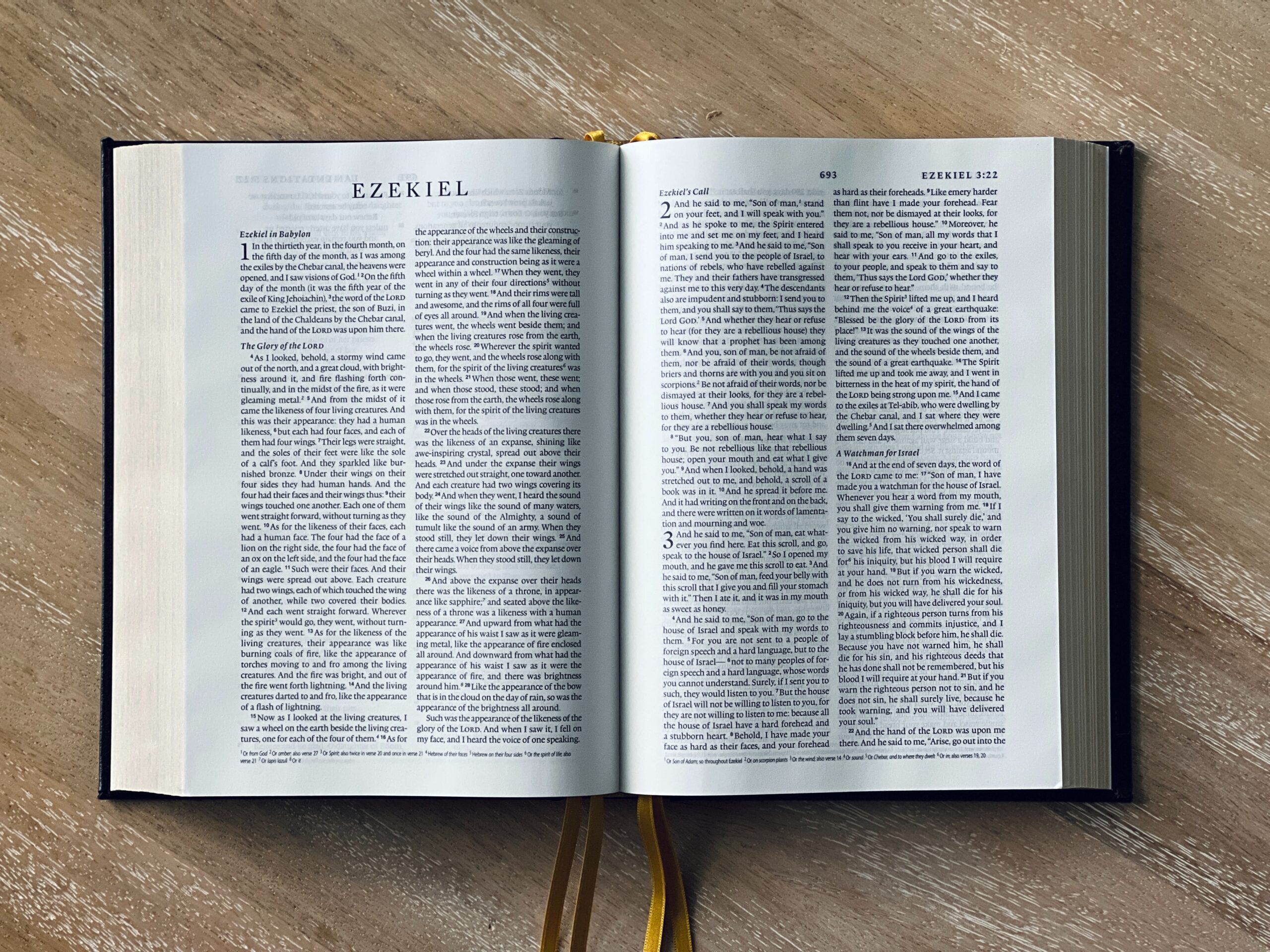| Getting your Trinity Audio player ready... |
I am certain that people are not held accountable for that which they did not know…If the amount of revelation is not great, then the severity of their iniquity is lessened, which is understandable.
[Context: Can Non-Jews learn Torah? A certain book discouraged this]: No, they should study, they should study the Torah that is accessible, they should immerse themselves in the study. They should study all of Scripture. Learn about it. Without absorbing Isaiah and Zechariah, how are you going to know how to worship God? And how are you going to know how to treat anybody? And how are you going to know how God kisses you, and holds you, and that He’ll never abandon you? How are you going to know any of that? So study it very carefully. Don’t let these things, don’t let it, just continue to study.
The missionaries and the church, they got more money than I do. They do. They’re bigger, they got money, they got resources, they got it all. The nations, the enemies of our people, detractors of our people, (now, many missionaries of course, they’re not really enemies, they don’t know any better). But those who are our spiritual opponents, they have their armies greater than ours, their nations are larger than ours, we can’t compete with them. The only thing the Jewish people have is emes, is truth. That’s it. In every other front, Jews for Jesus has more money than us, the Chosen People Ministries has more money than us, the Assemblies of God have money, they don’t even know what to do with their money, the Mormon Church has money coming out of their nostrils. They have it all. The only thing the Nation of Israel has is Emes. Is truth. And the moment the Jewish People abandon that truth, the moment we use arguments that may be cute, but they’re not emes, they’re not true, then we have nothing. Only thing we have is the Emes.
When speaking to a Christian, should one quote Maimonides? The answer is never, never do that. This is very important for every person who is speaking to a Christian, never quote a rabbi. Never. You’ll never hear me do it. That’s the most dangerous thing you can do. And it’s almost putting a stumbling block before the blind because the Christian really is only interested in Scripture. And one of the things I found out is Christians are really sincere people, but they have been taught that the rabbis are, you know, it’s ‘the word of man, not the word of God.’ So if you quote a rabbi, not only does it not help the Christian, it actually confirms what the pastor said that the Jews are following rabbis. Now in fact the Thirteen Principles of Faith are founded on Scripture, they are. I need you to trust me here, when you speak to a Christian, the word, ‘rabbi’ had better not come up in your conversation. Later on, they will have emunas chachamim [trust in the Sages]. But I will tell you this that when you’re talking to a Christian, if you say ‘my rabbi said’ the conversation just ended and the Christian is gone. You might continue talking but they’re going, ‘Yeh my pastor was right. You guys follow rabbis.’…When Christians leave the church at first they are very traumatised. And for some, not all, there is a kind of feeling, ‘Gosh, I spent 40 years in the church, and I was following man. And now I’m just going to follow God.’ And what happens is they have trouble with trusting the Sages of Israel because they are so damaged, so hurt, they’re not bad people. It takes some time to recover. Every person is different, truly, but they have to be fed properly. It doesn’t mean you need fancy tricks, it means (they’re so, everyone is different, I’m not saying this is true in every case, very often people coming out of the church have trouble with Torah Sheba’al Peh; even though they don’t realise that the whole, everything without Torah Sheba’al Peh, Oral Torah, you don’t know anything. They don’t know that. Because the only people who don’t believe in the Oral Law are people who don’t keep the Written Law. They never thought about that. They’ll find that out later.) But never, never quote a rabbi to a Christian…Maimonides didn’t give us the Torah, Maimonides is conveying, Judaism is not the religion of Maimonides. Maimonides is one of the greatest teachers of Israel, but it’s not that he is a law-giver but he elucidated that which was given to us by Moses and the Prophets of Israel.
One time I had a private dive guide; he was an idol worshipper…He said tomorrow is a day that we are going to eat from these pigs for whatever god it was…He was a very nice fellow and I didn’t want to hurt his feelings; I wasn’t really familiar with exactly his religion…I didn’t know if I would offend him and it therefore it would be a waste of time to talk to him or worse…I was thinking, “Hashem is watching me now, what should I do?” Tomorrow they’re going to slaughter these pigs for whatever god it was. And I thought that Hashem would not be happy if I didn’t say anything. I could not figure out a way in which Hashem is going, “It’s okay, don’t say anything.” I just couldn’t…as a caveat…we were good friends and he really liked me…Then I eventually just said to him, “I hope I don’t offend you but really there’s one God.” I don’t remember the words I used. I pleaded with him not to be angry with me…I pleaded with him in as nice as way I could and he said, “I’m not going to [participate in the pagan festival].” I don’t know why he accepted what I said. He said to me, “I’m only going to worship one God.”…Baruch Hashem.
All our Sages considered Christianity idolatry. Not just an idolatry, it’s the worst possible idolatry. And I need to correct that point because people will misunderstand this. The question only hinges on an issue of Jewish law of whether you can do business with Christians right before their holiday as an example. Because if you are doing business with a Christian you’re then providing income for them in turn which they will use for their own idol worship. So that’s the line, could you have financial business dealings with idol worshippers because at some point you’ll have a falling out with your business partner and he’ll swear in the name of his gods that he’s telling the truth. And then you have caused a blind person to stumble. So on that point there is essentially, it’s not the consensus view. So there’s the position (let’s just say) of the Meiri; a French rabbi from the medieval period that ‘well non-Jews were not warned about that iteration of idolatry.’ This is a very problematic view…But I never had that conversation with the Rebbe. The Lubavitcher Rebbe (of blessed memory) cared deeply about people in the church. He in fact was a lone voice dating back more than a half century ago when he insisted that his followers take up the mantle of teaching the Seven Noachide Laws to non-Jews so that they embrace Judaism without converting to Judaism. He was the one who had the insight and foresight to do this. Now it’s not like no one else did but engaging in that practice 200 years ago in England would get you, you might be executed for that. Engaging in that in the 16th century in Switzerland, Calvin would have had you executed for that. But now that in America as an example, you can teach and preach whatever you like, there’s no compelling reason for Jewish people to be concerned about dying for this. So therefore the consensus view really is that Christianity is not only idolatry for everybody [Jews and non-Jews]….Christianity is not just idolatry, it is the worst, most grotesque form of idolatry because it is a partnership idolatry, and it is the first type of idolatry that is assaulted, that is attacked, in the Ten Commandments…
[Should Muslims convert to Judaism?]: Muslims should be Bnei Noach. That’s what they should be. Now it’s a little tricky because Muslims are not worshipping idols, they believe in One God and One God alone. They are not idol worshippers. This has enormous ramifications in Jewish law. It is not permitted to walk into a church. You can’t. You can walk into a mosque. There are different iterations of Islam. There are some Muslims who believe the Torah has been corrupted. I want to see Muslims understand that Tanakh is the word of Hashem. So Muslims should aspire to be Bnei Noach. No one has to convert to Judaism. If you feel, the person who converts to Judaism is someone who feels like, ‘I just have to be a Jew. That’s who I am, and if I don’t convert to Judaism I’m just not.’ So that’s very important. If you’re supposed to be a Jew you will feel an irresistible calling to be a Jew. When you speak to someone who has converted, they’ll tell you if you ask, ‘Why did you convert?’ ‘Because I am a Jew, that’s who I am. If I don’t then I’m not who I am.’ So no Muslim has to convert to Judaism but rather they should but they should fulfil what’s called the Seven Noachide Laws (is less than 100 commandments).
We need to clear up something because the term Noahide is an unfortunate anachronism. When a person becomes a Noahide they are not becoming a Noahide, what is that? Every human being is a descendant of eight people…When a person does what you call ‘Noahide’ [is that] you are converting to Judaism. You are joining the Jewish faith. Judaism is your faith…So the moment you accept the God of Abraham, Isaac, and Jacob in your life, and renounce all idolatry, and committed your life to serve Him and have a personal relationship with God, you have converted to Judaism. However, you didn’t join the nation of Israel, you joined the faith of Israel…Let’s not use strange words. The problem is a language issue. The moment that you accept the God of Israel in your life, you then converted to Judaism. However, there are two ways to convert to Judaism. One way is to embrace and follow the faith of Israel and the Lord is your only husband, He is your only Master, your only Maker, you have converted to Judaism. But what is this converting to Judaism? There are some people who feel that, ‘I must join the Jewish nation.’ Both of them are converting to Judaism…
In a way Heaven and Hell are much more real than this world. Very, very real. Because here we live in a world of lies. Where what is considered low and what’s low is considered high. What’s sweet is bitter and what’s bitter is sweet, as Isaiah says. But there is Judgment after death. So let’s talk about what happens after a person dies; when a person is 120. After a person dies and they’re buried, until a person is buried their soul cannot leave. So it’s very important to bury as quickly as possible. And once the body is buried (Ecclesiastes 12:7) the soul goes to be with Hashem. Not the physical body. The physical body, except for the bones, decays. The bones are preserved for the resurrection. It will be reconstituted for those who are loyal to Hashem and love Hashem. They will have the resurrection. Let’s just say there are three types of people after they die. One person is somebody who does teshuva and repents for all of her sins. As soon as she’s 120 and she goes to be with Hashem, she immediately goes to a place (not a physical place but it’s more real than here) and her neshama enjoys the Ziv HaShekhinah [radiance of the Divine Presence]. Now we are using language of a material world but it means something that’s metaphysical; we’re constrained by our language. But the soul then is in the presence of God and that pleasure is so intense, it’s 60 times more intense than any pleasure that can possibly experience in this world. There are some people might die who do not fully repent for all their sins. That means they were basically good people but they did not do teshuva for all their sins. Sometimes Hashem sees a very good person and doesn’t want them to suffer any Gehinnom (whatever we will call Hell in the world to come). So HaKadosh Baruch Hu causes good people to suffer in this world and that atones for all the sins so when they die everything is all paid up. They also go directly to be with God. But there are some people who are basically good people but they did something and they never repented for it. Now because we don’t know when is our last day, no body knows. A person should do teshuva right away, right away, a very holy thing. So that person which maybe most people (I don’t know), but that person has a good soul. They go to Gehinnom for up to 11 months. There is only one verse in the entire Tanakh that mentions this [Isaiah 22:14]. That a person could atone for their sins after they die and that’s the maximum time that soul could be in Gehinnom. What it is, it’s a washing machine. Whatever that means it cleanses the soul of those sins that were not atoned for in this world. People suffer terribly in this world and God keeps count of everything. The Gemara says that a person reaches into his pocket and he wants to (I’m transposing) take out a quarter but he takes out a nickel…What do you fell? Ah! Right? It’s unpleasant. The Gemara says even that discomfort of taking out the wrong currency is taken into account. Hashem sees every little displeasure, anything unpleasant that you experience is in your account. Perfect, perfect. Everything is seen. So good, good people, they made a mistake, so Hashem then – that person goes to Gehinnom for up to 11 months. Chas v chalila [Heaven forbid], there are some people who really have problems – they might go to Gehinnom for 12 months…And then of course I don’t have to explain to you that there’s Hitler and Göring and Sadam Hussein – so they’re destroyed. They [suffer] eternal damnation. These are very evil people. Now why do I say Hitler? Because he’s the most evil person that ever lived, obviously. A person who fears Hashem does not engage in saying, ‘This person is going to [Heaven or Hell].’ Sometimes Christians are a little arrogant [saying] ‘I’m saved, he’s not.’ Who are you to talking about? A person who fears God doesn’t talk that way…
Permission to Distribute:
Regarding a Torah scholar who gave a Halacha class or spoke about other Torah issues in public, it is permitted to spread his words in CD’s to teach the wider public. On that the verse said: “just as I teach Torah for free, so too, you must teach for free”. Similarly everything that the owner give up hope of retrieving after it was spread out all over (through the Web) and everyone has access to it, there is no prohibition to disseminate it for the sake of Heaven, or for his own benefit. – Rabbi Yitzchak Yosef













